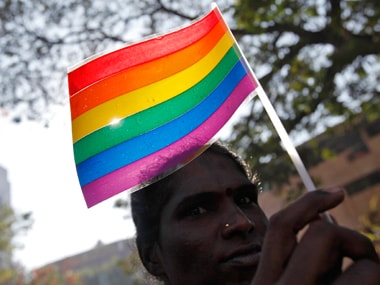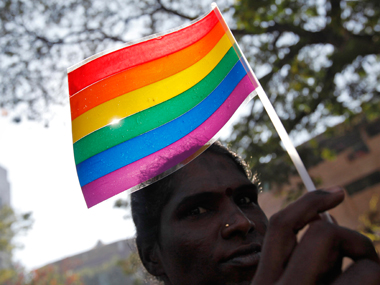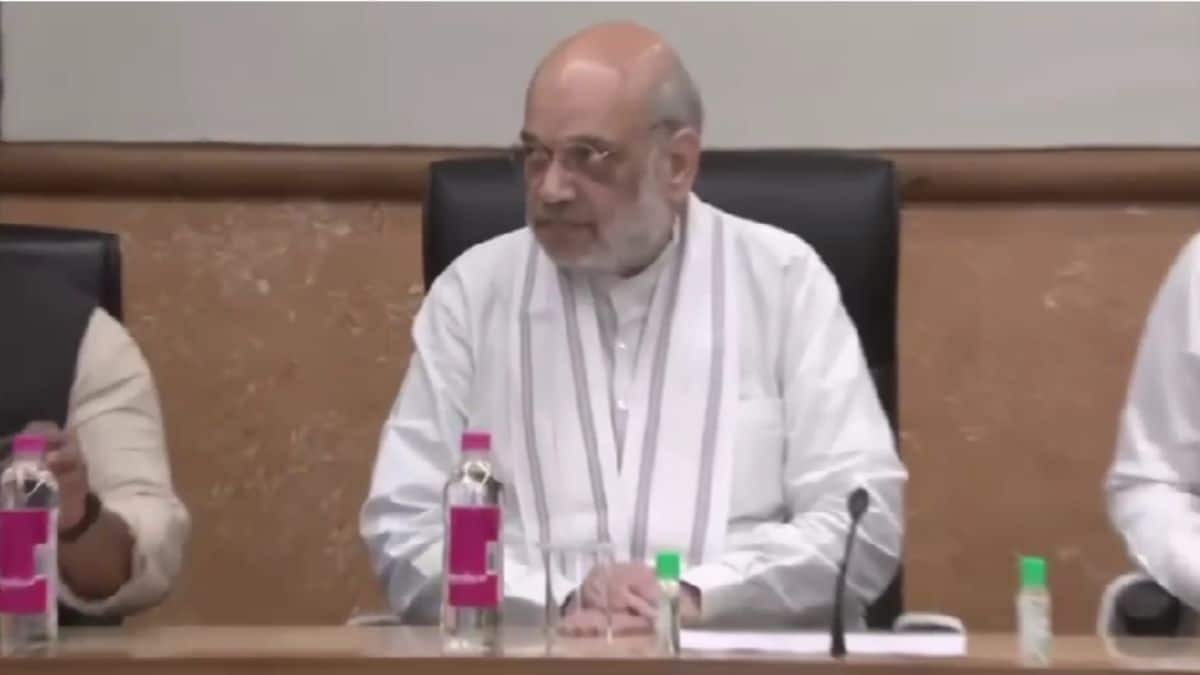Miniscule fraction. Since 2013 that phrase has been stuck in my gullet. In 2013 when two judges of the Supreme Court had recriminalised homosexual sex they had dismissed gays, lesbians and bisexuals as a “minuscule fraction”. [caption id=“attachment_3459050” align=“alignleft” width=“380”]  Representational image. Reuters[/caption] That ruling had come as a body blow to the Indian LGBT movement. It set aside the 2009 Delhi High Court ruling that had read down Section 377, not on grounds of pity or to make it easier to do HIV/AIDS work but out of “recognition of equality which will foster the dignity of every individual.” In 2013, the court not only set that landmark ruling aside and lobbed the ball back to Parliament, the court seemed to dismiss the community as a whole and the “so-called rights of LGBT persons”. It said “The High court overlooked that a miniscule fraction of the country’s population constitute lesbians, gays, bisexuals or transgenders and in last more than 150 years, less than 200 persons have been prosecuted for committing offence under Section 377 IPC and this cannot be made sound basis for declaring that section ultra vires.” Justice Singhvi said he had never met a gay person. More than anything else, I remember how much that stung. There could be a perfectly valid debate about privacy as a Fundamental Right. There could be a valid debate about whether court or Parliament was the proper venue to overturn Section 377. But I had not thought that in 2013, in a liberal democracy like India, we could still be arguing about whether gays and lesbians were any less Indian, or deserving any less of their rights as Indians, just because of their numbers. I am not a lawyer but to me that phrase “miniscule fraction” was a slap in the face. It’s as if the court said that all those who came out, all those who marched, all those who wrote op-eds, all those who tried to sensitise media did not matter. Even those who committed suicide were just not important enough to matter. Or rather there were just not enough of them to be important enough to matter. They did not make the threshold of relevance. That indifference stung almost more than straight-up homophobia. It was confounding logic as well. As former Justice Leila Seth wrote in The Times of India, it was like saying “the Parsi community could be legitimately imprisoned or deported at Parliament’s will, because they number only a few tens of thousands.” But no one would ever say that about Parsis. Or about some sub-caste. Or a tribe restricted to one island on the Andamans. But it was OK for the highest court in the land to brush LGBT Indians aside just like that. I wish Leila Seth was around today to read the Supreme Court ruling on privacy. It could have just ruled that privacy was a Fundamental Right and left it that. As a Fundamental Right, it was bound to apply to every Indian, LGBT or not. Someone else could have drawn that conclusion. But the court seemed to want to go out of its way to rectify that lasting sting of “miniscule fraction”. It brought that phrase up again. It said that just because LGBT Indians might be a “miniscule fraction of the country’s population” that is “not a sustainable basis to deny the right to privacy”. The court went on to say “The purpose of elevating certain rights to the stature of guaranteed fundamental rights is to insulate their exercise from the disdain of majorities, whether legislative or popular. The guarantee of constitutional rights does not depend on their exercise being favourably regarded by majoritarian opinion." The court effectively told us that we might not approve of gays and lesbians, but that does not give us the right to discriminate against them. If we want to make criminal whatever makes us uncomfortable, we are going down a very slippery slope indeed. That’s what Subramanian Swamy does not get when he tweets confidently that 84 percent of Indians disapprove of homosexuality. They might but that does not mean a homosexual having consensual sex should be thrown into prison. The actual 377 case will be heard separately. This court did not overturn 377 or read it down. Rejoicing about that would be premature. The government could argue that 377 is a “reasonable restriction” of the Right to Privacy. But it certainly raised the bar. By ruling privacy as a Fundamental Right, it laid the groundwork for that case. A Fundamental Right can be demanded. Anything less has to be pleaded for. All of that will be argued by lawyers in the days to come. But for ordinary people like me this ruling gives something far rarer. It restores a certain sense of dignity to a bruised community. It says that in the eyes of the law, you matter equally, no matter if you are one, or one hundred or one million, no matter if Justice Singhvi has met you or not. At that time I had written , bravely, that the court ruling could not undo the progress that had been made in an India where LGBT film festivals and pride walks are no longer limited to metro cities. It would not snuff out the gay life that had bloomed in the brief Delhi spring after the high court verdict. I remember the Day of Rage protests that had come in the wake of the Supreme Court reversal. I remember being amazed that this was an issue on which Sonia Gandhi, Chetan Bhagat and Sri Sri Ravi Shankar could speak out as one. “You cannot turn the clock back to 2008 any more than you can squeeze toothpaste back into a tube,” I had written. The support that the issue received made me think that the Day of Rage was equally a Day of Celebration. Yet deep inside I could not shake the discomfiture of that one phrase, the injustice of it all. I remember activist Siddharth Dube writing about how he and his live-in boyfriend were hauled into the Jorbagh police station where the officer looked at him with “loathing” and said “You are a homo! You have naked men dancing at your house exposing themselves. Go back to America! You think you can live here but you’re wrong." I remember how helpless he felt, how alone. That was in 1988. In 2018 the officer might still look at him with loathing. He might still call him a homo. But his disgust will not change Dube’s fundamental Right to Privacy. That’s the difference. The battle for 377 itself will happen another day. But for now, let’s celebrate this ruling in the name of all miniscule minorities everywhere.
In 2013 when two judges of the Supreme Court had recriminalised homosexual sex they had dismissed gays, lesbians and bisexuals as a “miniscule fraction”.
Advertisement
End of Article


)

)
)
)
)
)
)
)
)



